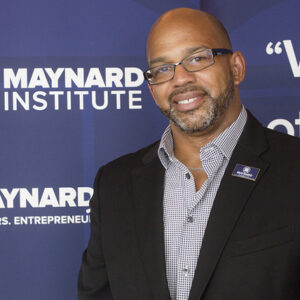 The session will cover different forms of bias and the conditions where they are most likely to thrive. Attendees can expect to expand their understanding of how the Fault Lines®, biases, and microaggressions all come together to create untenable relationships with colleagues, community, and work environments.
The session will cover different forms of bias and the conditions where they are most likely to thrive. Attendees can expect to expand their understanding of how the Fault Lines®, biases, and microaggressions all come together to create untenable relationships with colleagues, community, and work environments.
The Maynard Institute works to help attendees understand microaggressions – what they are, who commits them, how they erode morale, and what you can do to stop them and hold colleagues accountable.
*This discussion will be tailored for WGAE members as determined by a pre-workshop survey distributed to attendees. This additional survey will be linked in your confirmation email. Please complete by EOD on Monday, June 10.
Martin G. Reynolds is the Co-Executive Director at The Robert C. Maynard Institute for Journalism Education Martin oversees fundraising, client relations & external affairs and serves as the institute’s lead Fault Lines® diversity trainer. He is the co-founder of Oakland Voices, an award-winning storytelling project that trains residents to serve as community correspondents. The program is now in its 10th year. He previously served as director of the Reveal Investigative Fellowship with the Center for Investigative Reporting. Reynolds served on the board of directors for the David and Reva Logan Family Foundation between 2010 and Feb. 2023. He currently serves on the board of directors of Cityside, the parent company to Berkeleyside and The Oaklandside, two award-winning hyper-local news sites in the Bay Area. His journalism career with Bay Area News Group spanned 18 years and many roles; among them, managing editor and editor-in-chief of The Oakland Tribune. Reynolds was also a lead editor on the Chauncey Bailey Project, formed in 2007 to investigate his slaying. He is a professional lyricist and among his many musical endeavors, was part of a live album recorded with his band Mingus Amungus in Havana, Cuba.
PLEASE NOTE: WGAE is able to present this event for free due to a generous grant from the New York State Consortium for Worker Education (CWE).
CWE receives a significant portion of their funding from the state, and needs to collect comprehensive data from program participants so they can provide supporting documentation necessary to maintain that funding. In the event that a government agency wants to audit or question the validity of the funding, the data is used to demonstrate program outcomes.
Completion of the registration form is required to attend this event.